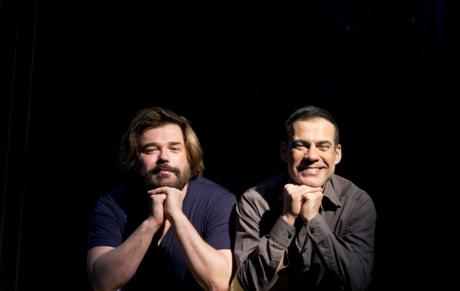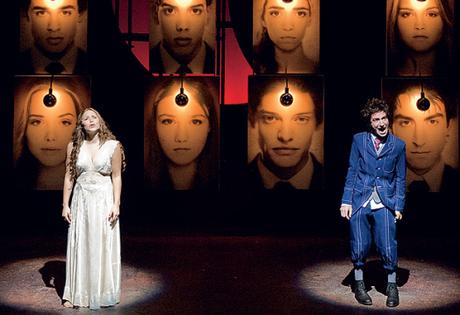 Brazilian Dream Team: Charles Moeller & Claudio Botelho
Brazilian Dream Team: Charles Moeller & Claudio BotelhoTime to Remember…
A lot has happened in Brazil these past few months. Why, the headlines of the major news organizations are filled with the goings-on from below the equator. The problem is they haven’t been on the positive side of things, if reporters and media pundits are to be believed.
From the political crisis involving President Dilma Rousseff’s impeachment proceedings to the worst economic downturn in nearly a century, Brazil has been reeling from a plethora of terribly bad to steadily worsening bulletins.
Unemployment is up, while GDP is down. Despite claims to the contrary, the Zika virus continues to worry athletes and participants of the upcoming 2016 Summer Olympic Games; while the threat of bacterial infections has raised concerns with World Health Organization officials over the growing unsanitary conditions found in Rio’s Guanabara Bay.
Add to this the increasing climate of violence due to widespread police killings; the mind-blowing and ever-expanding corruption scandals at all levels of government; the shortage of available housing brought on by the massive number of evictions from Rio’s poorest districts; delays in construction and infrastructure projects that have led to cost overruns and overly optimistic projections of a return on the government’s investment.
All these factors have contributed to the disquiet and unrest that have gripped the Brazilian nation for well-on two years now.
Despite the gloomy forecast, there remains one bright spot — an oasis in the desert of political and economic instability — and that is, the continuing esteem Brazil’s musical theater has been held in by the paying public. It’s as if those MGM wartime musicals had been recreated strictly for the Brazilian market, in the way they use to divert audiences from the horrors of real life.
Today, this has been made possible by the presence of two uniquely talented individuals.
I’m referring, of course, to the Brazilian Dream Team, that dynamic duo of the Rio stage, the “Kings of Musical Theater”: director, writer, costume and set designer Charles Möeller and musical director, translator, adapter and lyricist Claudio Botelho.
I’ve given extensive coverage to Charles and Claudio’s efforts in this vein ever since I began corresponding with the “Boys from Brazil” back in October 2010, and regularly after I had met them in Manhattan in September 2011. Their work, in particular a remarkably entertaining and thoroughly absorbing theater piece named 7 – The Musical, left no doubt they were on the cusp of international stardom.
It happened that at the end of December 2015, Charles and Claudio celebrated their 25th season together as working partners and business associates. In recognition of their hitting the quarter-century mark — and in expectation of bigger and better productions on the immediate horizon — the pair granted a year-end interview to Rio de Janeiro’s Globo News.
After perusing their comments and listening to the enthusiasm they appear to express when discussing their chosen profession, I’m sure readers will agree that with Möeller and Botelho, the sun will always come out on their shows — if not tomorrow, then the day after.
And the day after that and the day after that … And boy, do we need it now!
Recounting the Duo’s Success Which Led to 38 Hit Shows

One is sarcastic and self-contained. The other is open and expansive. The very different and quite opposite personalities of these two gentlemen prove that Charles Möeller and Claudio Botelho were born to complement each other as they embarked on a direct path to success.
They’re celebrating 25 years of a professional partnership that has borne such marvelous fruit as Cole Porter — He Never Said He Loved Me and Spring Awakening. There have been nearly 40 works signed off by the team that has also given birth to numerous other partnerships in their field: iconic actors and actresses, as well as those they have seen rise to stardom.
Here is the most recent conversation with this accomplished Carioca twosome that has become a reference point in the genre of musical theater in Brazil.
Trade Secrets
Charles Möeller: The secret of a professional relationship is in knowing when to pick your battles. The argument is the most beneficial thing that exists in a relationship because it can determine who gets the last word. When you realize there’s something bigger at stake and come to believe that it’s really worth fighting for … then the argument can only make it better. Friction is what moves us to action and causes us to accept these differences of opinion. We’re two regular guys who enjoy a good fight! Anybody who stands next to us can’t believe what they’re witnessing! You’d think we will never be able to look each other in the eye; but five minutes later we’ll act as if nothing’s happened (laughs).
Claudio Botelho: In the past we would argue almost to the point of coming to blows (laughs). Knowing how to fight is the secret, no doubt about it. If one side is right and the other side is wrong, the end result will demand at lot from us both: we always have to prove we’re right. What makes me the happiest guy in the world is the recognition we get from our work.
Artistic Affinity
Charles Möeller: We met each other as soon as I moved to Rio de Janeiro, in 1989. I was performing in a soap opera called Mico Preto (“Black Monkey”), playing Miguel Falabella’s son, who was then directing the play Um e Outro (“One and the Other”) in which Claudio was part of the cast. I attended an open rehearsal and, as soon as we started talking about musicals, we identified with each other. He was already an expert on the subject and had this goal in mind of an artistic career, while I had just left the company of Antunes Filho and had an aesthetic affinity with the genre. There was a meeting where I provided the stage pictures for a musical and Claudio provided the songs. Duos need to play off one another; those that don’t usually backfire. The neat thing is to be different.
Claudio Botelho: Musical theater is basically a craft made for twos and threes. No single person can go it alone. We only succeed because of one another. When we first met, I realized I had found someone with the same reference points as I had. It was extremely rare for someone my age to have seen the same movies as I had. We had so much love for musicals that, from one day to the next, something clicked. I thought: there’s no way we can do this [type of thing] here [in Brazil] (laughs)! I wanted to show people what I loved the most about musicals; I wanted to share with them what I found so amazing about them. I get excited when I can finally convince the public of this. My greatest pleasure is to sit in the audience and see the place go wild with what we’ve brought to the stage.
Reference to Type
Charles Möeller: We’re obsessed with the genre. It’s not a passing fancy with us, nor are we following the demands of the market. What motivates me to want to do musicals even today is the same motivation I had from the beginning: that the show transforms me and takes me out of myself. We strive for the professionalization of the genre, and lavish it with great technical care. In that way we become a brand.
Claudio Botelho: We changed the type of public that goes to musical theater, which used to be a much older crowd. The generation that watched our show Cole Porter, which really lifted us to success, doesn’t go to the theater anymore. It was Spring Awakening that brought younger audiences to the theater and exposed them to the genre. Our main focus, then, became entertainment for the whole family. We concentrate on the needs of the market, on what the competition has to offer, but without setting aside artistic quality.
All Work, All the Time
Charles Möeller: I have my favorites, but each piece I present takes such a huge chunk out of my life that I always feel the last play I work on is the one that best reflects who I am at the time. I still want to work with so many artists. I love to call on unusual people to partner with, and they end up becoming quite close. My dream is to work with Fernanda Montenegro. I also admire the work of Domingos Montagner and that of Fernanda Torres.
Claudio Botelho: It’s that old cliché of asking which child do you love the most (laughs)? The most important “child” of our career was, curiously enough, the one that made the least money: ‘7.’ It was our creation, one that garnered many awards, but the public wanted to hear more familiar tunes. Still, it was an important benchmark in our history. I, too, dream of working with Fernanda Montenegro and feel this can happen at any moment.
The Future

Charles Möeller: Next year [2016] we’ll present an adaptation of the movie The Apartment, in the musical Promises, Promises with Marcos Veras and Maria Clara Gueiros. In the second half of the year we’ll be bringing Pippin to the stage, with a huge cast of unknown performers!
Claudio Botelho: I’m certain that Pippin will bring the same audience that saw Spring Awakening to the show. In addition, we’ll be releasing the film Os Saltimbancos Trapalhões (“The Bandit Stooges”), and we just bought the rights to the movie Whatever Happened to Baby Jane?, which has been adapted for the theater. We’ll be responsible for the world premiere showing!
By Globo Theatre, December 25, 2015
(Translation by Josmar F. Lopes – Copyright © 2016)

